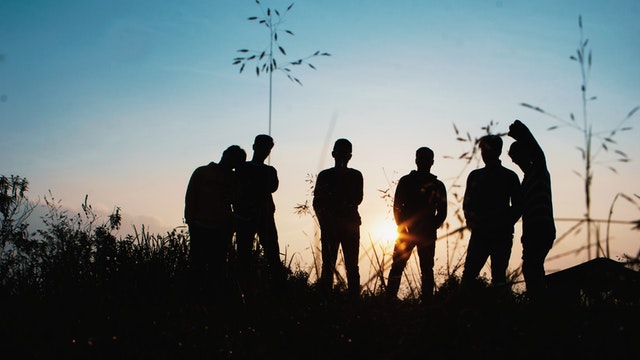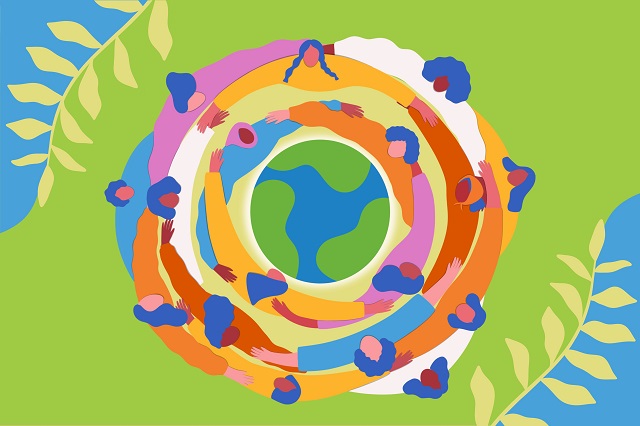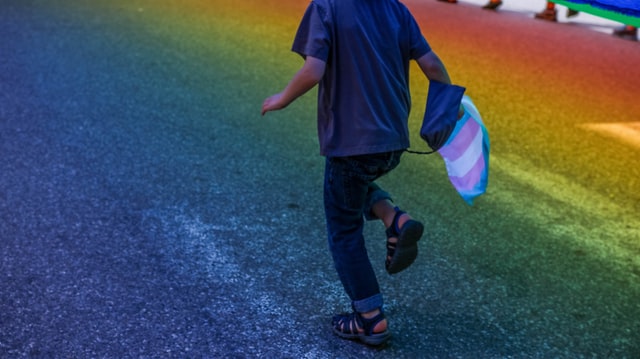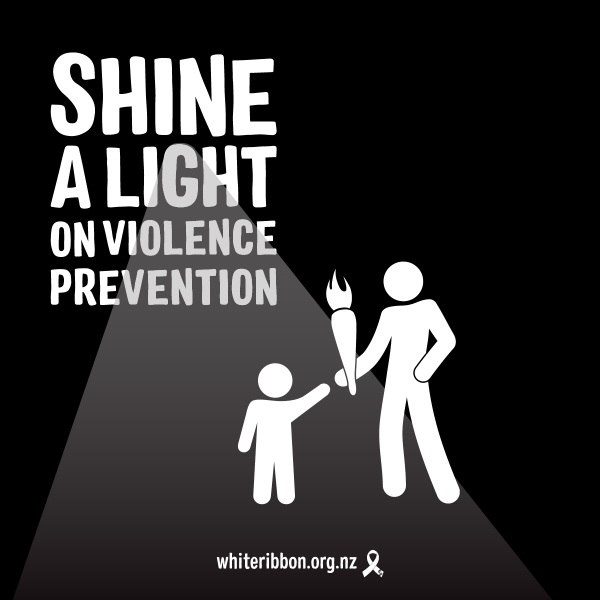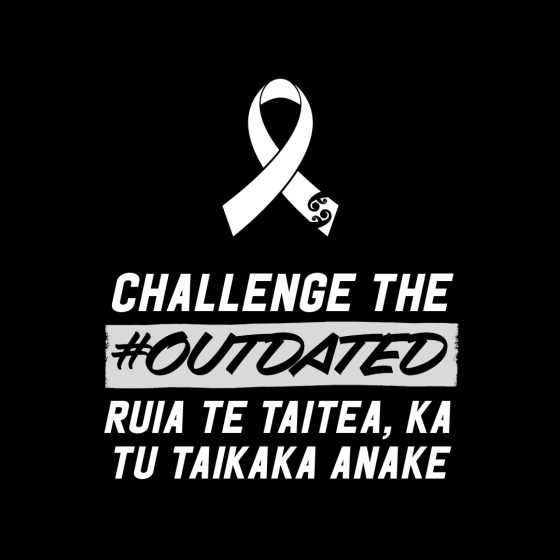White Ribbon, 16 days of activism, related events and resources
Wed 23 Nov 2022
The 25th of November is White Ribbon Day and the International Day for the Elimination of Violence against Women, which starts the 16 days of activism. Find information about 2022 campaigns and a range of events and resources.
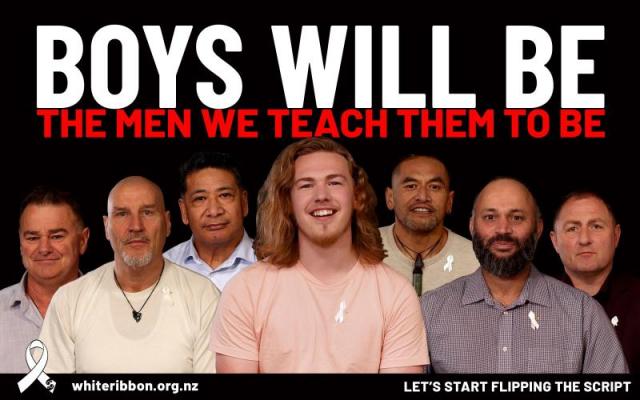
White Ribbon
The Aotearoa New Zealand White Ribbon 2022 campaign brings together resources and advice for parents, especially dads, to communicate with their children about issues like consent, healthy masculinity and respectful relationships. Events are happening around the country.
The campaign has also released new free online resources focused on flip the script to change phrases that promote unhealthy stereotypes. The resources include posters, graphics and a toolkit to flip the script around the phrase 'boys will be boys.' The toolkit introduces the 2022 campaign saying:
"The stereotypes and ideas from the past that are causing harm in our communities need to go. One of the leading predictors of violence towards women, is the belief in the rigid rules of masculinity. That means the more we tell our boys to harden up, don't cry and act like a man, the more we are promoting the kind of attitudes that support violence."
And it goes on to say:
"Let's take this outdated support for rigid masculinity and flip it on its head, because there are awesome things that boys can be that need to be celebrated. Boys can be kind, caring, and trustworthy. They can be allies, ethical, generous, humble, compassionate, supportive, respectful, thoughtful, multi-dimensional, considerate, gentle, and vulnerable. Boys have the potential to grow into great men that will not remain silent about violence."
Previously developed resources from the campaign include the following toolboxes:
- Kids and Gender Toolbox - for parents to support children who challenge gender norms
- Being Men Toolbox - understand and challenge stereotypes about what it is to be a man, and support healthy masculinity
- Call-in Toolbox - create meaningful change.
Advocate and researcher Michael Flood talks about some of these issues in his article ‘Toxic masculinity’: what does it mean, where did it come from – and is the term useful or harmful?.
International Day to End Violence Against Women and the 16 days of activism
Shine is offering a free webinar that looks at what causes family violence and gives an introduction to an intersectional approach to family violence. The webinar is scheduled for 30 November 2022, as part of the 16 days of activism. Register your interest or see Shine's Facebook for more details.
The 16 Days of Activism against Gender-Based Violence is an international campaign. It starts every year on 25 November, the International Day for the Elimination of Violence against Women, and runs until 10 December, Human Rights Day. The campaign was started by activists at the inaugural Women’s Global Leadership Institute in 1991. The US-based Center for Women’s Global Leadership continues to coordinate the global 16 days of activism campaign. For 2022, the theme is continuing from last year, focused on ending femicide.
The United Nations Secretary-General’s UNiTE by 2030 to End Violence against Women campaign aligns with the 16 Days of Activism. The UNiTE campaign is a multi-year effort aimed at preventing and eliminating violence against women and girls around the world. The UNiTE campaign's theme for this year is “UNITE! Activism to end violence against women and girls”. See the UNiTE 16 days of activism concept note.
Related Aotearoa NZ events and resources
The Shifting the Line research group is organising a seminar by Dr Stephen Burrell on Engaging men and boys in preventing violence against women in times of crisis: Lessons from the UK. The seminar will take place in Auckland on 24 November 2022. It will explore these issues, and consider how to effectively work with men and boys to develop more caring, connected relationships with others and themselves, in order to prevent different forms of violence – from gender-based violence to environmental harm. Dr Stephen Burrell is an Assistant Professor (Research) in the Department of Sociology at Durham University in the UK. He is also a Deputy Director of Durham’s Centre for Research into Violence and Abuse (CRiVA). Stephen is currently conducting a Leverhulme Early Career Fellowship about the links between masculinities, patriarchy, the climate crisis, and violence. Registration not required to attend.
Tom Johnson's paper, Bro Ora: revitalising tāne Māori wellbeing through an awa lens (2021), looks at tāne Māori and their wellbeing in the context of colonisation and the subsequent effects on tāne health and wellbeing. The paper also looks at the literature related to colonisation as a driving factor of the genderisation of tāne Māori and the impact on contemporary experiences of wellbeing for tāne Māori. It highlights existing gaps in research for tāne Māori wellness, and suggests using Iwi-specific methodologies to understand and capture the experiences of tāne Māori wellness. Watch a brief video of the author talking about the paper.
Researchers have used data from the Growing Up in New Zealand (GUiNZ) survey to see whether parents pass on gender attitudes and gender inequality to children. The researchers found that in most ways parents treat boy and girl children similarly in Aotearoa New Zealand, yet there were some differences. Those small differences could contribute to inequality between genders and children’s understanding of gender stereotypes, but the researchers conclude the small differences are not the main cause of gender inequality. They write in the report, Gendered parenting and the intergenerational transmission of gender stereotypes: evidence from the Growing Up in New Zealand survey (2022):
"Overall, the differences in parenting by the child’s sex are not large enough to explain the gender inequality between adults in Aotearoa New Zealand. We infer that external structural factors outside parents’ control likely play a primary role in perpetuating potentially harmful gender inequality. Parents alone cannot end the cycle of harmful gender inequalities, particularly since they are often pressured to parent within society’s gendered structural constrains."
Related international resources
The Working with Men and Boys for Social Justice Assessment Tool is a new tool developed to support leaders, designers and facilitators of programs for boys and men to evaluate the social and gender justice capacities of their program. The tool is based on research and practice in the areas of social justice, gender studies and the critical sociology of men and masculinities. The team developing and offering the tool includes Australian-based researchers Amanda Keddie, Michael Flood, Shelley Hewson-Munro, Maria Delaney, and Anna Halafoff. The team is hosting an online session on zoom to introduce the tool, how it can be used and what additional resources and work is available to support using the tool. The event is scheduled for 6 December 2022. Registration required.
Our Watch, based in Australia, published Men in focus practice guide: Addressing masculinities and working with men in the prevention of men’s violence against women (2022). The guide outlines the long-term, collective, and intersectional approach needed to dismantle and transform the norms, structures and practices that reinforce gender inequality and lead to men’s violence against women. It provides strategies to engage with men and boys about healthy masculinities. The guide builds on a review of evidence, Men in focus: unpacking masculinities and engaging men in the prevention of violence against women (2019). Our Watch has also published an online interactive Prevention toolkit for Australian local government (2022).
UNICEF shared a video highlighting global work addressing the intersection of gender transformative parenting programmes with violence against women and children. The video includes representatives talking about their work from the Prevention Collaborative, UNICEF and Equimundo (formerly Promundo).
Nurturing care and men's engagement (2022) is a thematic brief that summarises evidence about the benefits of men’s engagement in care on outcomes for women, children, and men. It has information about designing and adapting services to engage men in providing nurturing care. It also outlines practical actions for policymakers and programme designers across four environments: policies, services, communities and caregivers. Nurturing care is an initiative hosted by the World Health Organization, World Bank Group and UNICEF.
For more resources and research, search our library under the subject heading Engaging men and boys in violence prevention.
Related media
Projects pilot ways to help men talk about the tough stuff, RNZ, 11.01.2023
Overcoming ‘toxic masculinity’, Gisborne Herald, 14.12.2022
She Is Not Your Rehab - Documentary Release, Te Hiku Radio, 06.12.2022
Anti-violence campaign encourages healthy masculinity and relationships, PMN News, 28.11.2022
Gisborne community holds whānau days in first step to turn round violence, RNZ, 28.11.202
Supporting International Economic Harm Awareness Day, Shine media release, 25.11.2022
Free webinar to raise awareness about gender and family violence, Shine media release, 25.11.2022
Lesley Elliott leaves a legacy of caring, White Ribbon media release, 22.11.2022
Matt Brown interview on Pacific mornings, 531pi, 22.11.2022
White Ribbon Day in a week, RNZ, 18.11.2022
White Ribbon launches new resource to combat family violence, Stuff, 14.11.2022
Feeling lonely and the dangers of the internet, Classification Office Blog, 31.10.2022
Valuable New Tool For Workplaces To Assess Whether Domestic Violence Policies Are Best Practice, Press Release: Shine, 27.10.2022 (see the tool, Is your organisation DVFREE Ready?)
Image: Aotearoa New Zealand White Ribbon Campaign, https://whiteribbon.org.nz/act/downloads/



